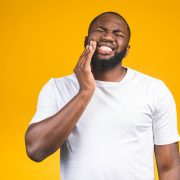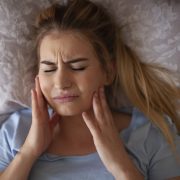Dangers of Untreated Bruxism
Grinding your teeth might not seem like a big deal, especially if you’re not feeling much discomfort. But when teeth grinding—also called bruxism—goes untreated, the damage can build quietly over time. Many people aren’t even aware they’re doing it until they start noticing real problems.
Wear and Tear on Teeth
The pressure from nightly grinding puts a lot of stress on your teeth. Over time, this can wear down the enamel, causing increased sensitivity. Teeth may chip, crack, or even loosen, and in some cases, this damage can lead to permanent tooth loss in Stuart, FL.
Strain on the Jaw
Bruxism also affects the jaw joints. Clenching and grinding can lead to pain in the jaw area and stiffness when chewing or speaking. Over time, this stress may contribute to TMJ disorders, which often come with clicking, popping, or difficulty opening the mouth fully.
Headaches and Fatigue
People with untreated bruxism frequently wake up with tension headaches or sore facial muscles. This tension can carry into the shoulders and neck, making it hard to feel rested—even after a full night’s sleep.
Risk to Restorative Work
If you’ve had dental work done—like crowns or fillings—bruxism can wear those down or dislodge them. This can result in repeated trips to the dentist for repairs, which adds cost and frustration.
Note that bruxism is different than clenching teeth together occasionally when a person gets angry or upset over something. Bruxism is an entirely different animal, with inherent dangers to the health of your teeth.
What You Can Do
The good news is, bruxism can be managed. Your dentist can recommend a custom nightguard to protect your teeth while you sleep. Addressing stress, improving sleep habits, and checking for bite issues can also help stop grinding before it leads to serious complications. Talk to your dentist in Stuart, FL today.





